 Hubert Sauper's We Come As Friends is an absorbing documentary about the human phenomenon known as Colonization,which has ravaged the continent of Africa for centuries. Focusing on the modern day events currently happening in Sudan, which has seen a country divided due primarily to outside investors from the United States and China, We Come As Friends is observant study of a country steeped in its tribal past that is simultaneously being pulled towards the future at a destructive pace for the indigenous people. We Come As Friends is a film that perfectly captures the emotional and physical detachment which foreign investors have when going to Africa for natural resources. To many foreign investors Sudan is just another piece of land which can be exploited, as these corporations divvy up sections of land on a map with blatant disregard for the locals, routinely slicing up distinct tribal cultures in the process. In Sudan's case, the foreign investors main focus is in regard to the oil fields, which has lead to the country being split into two distinct entities, North Sudan & South Sudan, each serving the respective, distinct interests of the United States and China. The leaders of these new defined countries are essentially controlled by the foreign investors, and Hubert Sauper's film paints a convincing portrait of how this type of outside influence is the main reason why this region of the world has struggled to develop. Through empowering leaders which have little disregard for the overall growth and prosperity of their country, the introduction of capitalism into this culture through these corrupt leaders has hurt the country more than helped it, with greed running rampant among officials while foreign investors continue to show more interest in the quick buck than any type of long term commitment. While there have been quite a few films about colonialism, We Come As Friends is one of the more balanced films on the subject i've seen, as it fully acknowledges the positive aspects which foreign investment can bring. The film argues that these investors need to have an interest in the long term development of Sudan, showing how unfortunately many of them are more interested in the quick dollar, not willing to take on the long term investment which would lead to prosperity for both the indigenous people and the corporations bottom-line. Full of fascinating observations about race, greed, religious oppression, and man's overall desire to own everything it can, Hubert Sauper's We Come As Friends is a film that understands there are no easy answers to this complex and troubling practices of colonialism, offering up far more questions than answers in this observant and detailed examination.
0 Comments
 Charles Rogers & Sara-Violet Bliss' Fort Tilden is an extremely funny and insightful examination of the quarter life crisis, which follows two Brooklyn hipsters in Allie and Harper, who are each struggling to find their place in post-adolescence. With the stagnation of life weighing them down, Allie has decided to join the Peace Corps as a way of doing something with her life, while Harper remains perfectly comfortable being bankrolled by her father. In an effort to avoid responsibility, the two friends embark on a lengthy journey to the beach at Fort Tilden, but along their journey they run into a series of escalating inconveniences which in turn makes each of them reevaluate their life plans. Featuring two star-making turns by Clare McNulty and Bridey Elliot as Allie and Harper, as well as a sharp and clever script, Fort Tilden is a very enjoyable comedy about the pitfalls of extended adolescence which offers some valuable insights into friendship. A pretty good example of why characters don't have to be likable in a film for it to be considered a success, Fort Tilden offers up two characters in Allie and especially Harper who are essentially the definition of privileged. Harper isn't a very likeable character, and the strain that she begins to cause Allie is one of the strongest aspects of the entire film, as Fort Tilden uses this friendship to delivery some profound insights into social groups. Fort Tilden exposes how these ttwo characters have essentially become dependent of one and other, as the film captures the entrapment one can experience when having the same small social circle for a long time. Fort Tilden captures the roles that can develop in social situations, as Allie has essentially become the pushover, which only enables Harper's privilege. While Fort Tilden works as a very funny comedy alone, what makes the film truly impressive is the well developed characterizations of its two main characters, enabling the film to delivery some poignant insights into the mid-20s, post-collage era of life. 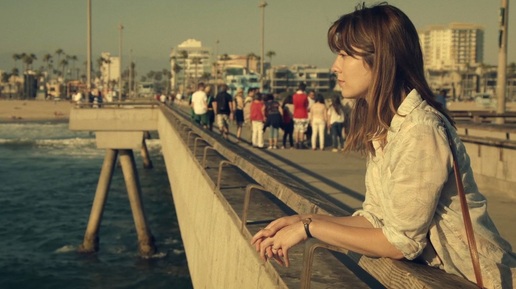 Alex is a workaholic, spending nearly all of her time on her latest high-profile court case. Returning home one day to her family, Alex is confronted by her husband, George, who explains that he needs some time away, being someone who has become emotionally and mentally exhausted from the constant duties of being a stay-at-home father. Now faced with the events of everyday life by herself, Alex finds herself of a journey of personal discovery as she begins to pick up the pieces of her broken family. Chris Messina's Alex of Venice is a solid albeit slight story of one woman's journey of self-discovery that falters at times due to a few questionable decisions. Alex of Venice paints Alex as a character who has never really had a chance to determine what she really wants, having been pregnant with her oldest child at the tender age of 19, essentially falling into marriage with George in the process. The biggest problem facing Chris Messina's Alex of Venice is simply that it brings nothing new to the table, being simply another film in the "self-discovery' sub-genre of indie filmmaking that quite frankly struggles to validate the need for having an entire feature around this character. Even George's departure and subsequent transition that Alex faces feels far too contrived, as the film feels completely comfortably in writing off their failed marriage as simply a bi-product of getting married too young. While this certainly happens, Alex of Venice could have spent more time in the beginning exploring the relationship dynamic of Alex and George, providing the viewer with more insight their strained relationship which in turn would have only helped the meaty 'self-discovery' aspect of the film. Without spedning more time at the beginning I couldn't help but wonder- If the gender roles in this film were switched would the characters be sympathetic in the slightest? Alex spends little time attempting to fix the marriage, moving on to new potential relationships rather quickly, something which I couldn't help but feel would be far more vilified by the audience if the character had been a male. The character study aspect of Alex of Venice is the lifeblood of the film, but the cinematography is quite impressive in its own right, as the filmmakers adoration for Los Angeles is captured throughout. While Alex of Venice never quite achieves the powerful mediation on self-discover it intends, the film manages to keep the viewer engaged due in large part to a strong central performance from Mary Elizabeth Windstead, who gives depth to a character beyond the written words of the film's screenplay. 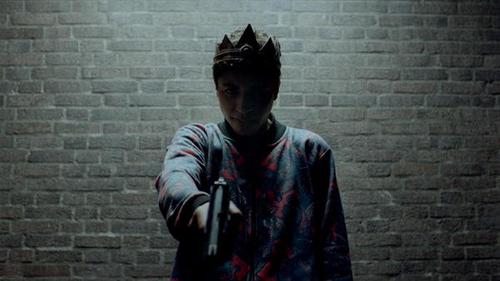 Sam do Jong's Prince is a stylish coming of age tale about Oussama, a teenage boy who is desperate for respect from his peers. Having a junkie father who only comes around to beg for drugs or money, Oussama views himself as the man of the household to his step mother and step sister, intent on being the protective force of the household. Confounding Oussama's confused mindset is a love interest, which further strengthens Oussama's romanticism as it relates to becoming the toughest, baddest boy on the block. Given the vibrant color palette and thumping synthetic score, it makes sense that Sam de Jong's film has garnered comparisons to the work of Nicholas Winding Refn, but it's unfortunately a more superficial comparison, as the direction and editing of Prince is expressionistic but pales in comparison to the artistry and emotion Refn's visuals are capable of evoking. Prince is a film about a young man who is essentially alone without a father, who finds himself forced to be the man of the house. He begins to romanticize toughness and masculinity, interpreting violence and oppression as the key to being a man and gaining respect. With only "the streets" serving as his education, Oussama embraces the gangster lifestyle, eventually learning that forgiveness and understanding are the real key to "being a man". Prince is a film best describes as a visual feast for the eyes, and while the film has some great moments of artistic ingenuity, it never fully works on an emotional level, due at least in part to its short running time and lack of depth in its characterizations outside of Oussama. While the scenes between Oussama and his junkie father offer vivid moments of poignancy, the film struggles with many of its other underdeveloped secondary characters, drawing little emotional resonance as it relates to Oussama's step mother and step sister. I also found the ending to be very strange, an overly sentimental finale that is far too clean and simplistic, feeling very out of place when considering the rest of the film. While some of Sam de Jong's Prince feels underdeveloped, the film's strength lies in its portrait of Oussama, a young man who is enticed by the false principles of masculinity which street culture breeds, eventually learning what "being a man" really means. 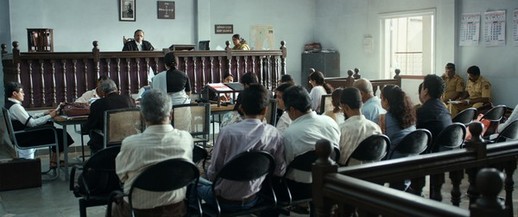 Chaitanya Tamhane's Court follows the plight of Narayan, an aging folk singer whose live performances draw the ire of the Indian government due to their activist nature. When a sewage worker's dead body is discovered in a manhole in Mumbai, the police bring charges against Narayan, accusing him of being the one who incited the workers' suicide due to his inflammatory song. Chaitanya Tamhane's Court is an intricate examination of the court proceedings that followed, being a film that paints a portrait of a country still steeped in ancient, outdated policies, specifically pertaining to censorship and activism. As the film progresses it becomes very clear that the case against Narayan is absurd, with the sewage workers death not being a suicide but a biproduct of state negligence, yet it hardly matters in the end. It becomes increasing clear that Narayan is in fact in trial from his "extremism" not this apparent suicide, with the film revealing the never-ending circular nature of a court system and government that is intent on silencing any voices of dissent. Through effective direction which consists almost completely of static compositions which give the film a naturalistic feel, Court reveals the coldness of the court system, a system that in itself feels more like an assembly line than a judicial authority. Following the draining and lengthy process of Narayan trial, the filmmakers make a brilliant decision of routinely letting the camera linger after Narayan's case has been dismissed for the day, giving the viewer glimpses into the cases that follow or precede his, exposing the overall mechanical process of the courts. Another interesting aspect is how the film spends time with every central figure in the trial, from the prosecutor to the defendant to the judge itself, humanizing these respective characters in a way that reminds the viewer that they are all cogs in a much bigger machine. Offering an intricate examination of how India's ancient policies of censorship simply don't belong in the post-colonialist society, Chaitanya Tamhane's Court is an impressively crafted piece of filmmaking full of insight.  Jon Watts Cop Car tells the story of two ten-year-old boys who have recently runaway from home. As they venture through the desolate countryside, the boys stumble across an abandoned cop car in a field. Discovering the keys, the two boys decide to take the cop car on a joyride, soon enough finding themselves in a deadly game of cat and mouse with the crooked, local Sheriff who desperately needs the car back. For a film with such a cold, pessimistic view of the world, Jon Watts' Cop Car is a surprisingly breezy experience, being a lean thriller which manages to blend its dark comedy and taut thriller aspects in a way that works quite well. A major reason why this works so well is undoubtedly the treatment of its two lead characters, as Cop Car writes these two main protagonists surprisingly well, doing a great job at capturing the naivety, sense of wonder, and exuberance which exists among children at this age. Through much of the film's running time the boys themselves have absolutely no idea how much trouble they find themselves in, though the audience is well aware that they are stuck in the middle of an extremely dangerous situation. Eventually confronted by the dangers they find themselves in, the boys find their carefree exuberance effectively shattered, as they are introduced to the danger and evil which exists in the world. At its core, Cop Car is essentially a very dark coming of age story which finds two young teenagers awoken from their active, carefree imaginations. While Cop Car is without question a dark film, the way Kevin Bacon's Dirty Cop character is written and actred, goes a long way in creating this aforementioned breezy experience. Bacon plays a character who simply isn't smart enough to keep himself out of trouble, using his wit and Sheriff status in town to slwoly dig himself out of his problems. The character himself is dangerous but not particularly menacing, which goes a long way when it comes to the dark comedy aspects of the film. Never feeling self-important in the way it juxtaposes the innocence of youth with the darker aspects of humanity, Jon Watt's Cop Car is a stripped down, well-crafted, coming of age thriller which somehow manages to balance both its comedic and dramatic elements.  Agnes, a professor, has arrived in Berlin to identify a dead girl who is believed to be her her runaway daughter Lydia. Much to her relief, the body isn't her daughters but another young woman who happened to have Lydia's identification card on her. With a glimmer of new-found hope, Agnes begins to frantically search the streets of Berlin for her daughter with little direction, consumed by her maternal instincts which have left her devoid of systematic thought. After a night of drinking away her despair, Agnes accidentally strikes Ines, a young homeless woman, with her car. There encounter is abrasive as first, but eventually it becomes something more, with Ines being a young woman who is far more willing to stay by Agnes' side. Maria Speth's Daughters is an intimate film about one mother's desperation to find the daughter she desperately loves. In a sense it's a film about maternity, showing the emotional effect a runaway daughter can have on a mother as Agnes finds herself trapped inside her own thoughts with nothing to consider but the worst about her daughter's fate. Much of the early film is directed in a very surgical way, with Maria Speth showing a nice ability to visually express Agnes' fears, grief, and desperation with carefully calculated compositions. The way the film is able to capture the mental isolation of Agnes is particularly compelling, using the combination of empty compositions and a remarkable lead performance by Corinna Kirchhoff that perfectly elicits this feeling of solitude a mother could have after her own daughter runs. Ines is an abrasive, free-spirited young woman whose lifestyle couldn't be any farther removed from Agnes, but as the two begin to form a relationship it becomes clear that Ines could be exactly what Agnes needs right now, being a young woman who views life it a much simpler, care-free way. Ines becomes almost this quasi-metaphysical representation of Agnes' own daughter, a young character who Agnes cares for but also a woman who uses her abrasive personality to push Agnes to reconsider her own motherly ways and how its shaped her relationship with her daughter. The two characters relationship begins to take on the mother-daughter dynamic itself, with their growing dependency becoming a dangerous thing due to the combination of Ines abrasive, almost antagonist personality and Anges weak desperation to fill the void left by her daughter. Daughters portrait of runaways is refreshing in that it understands that all runaways aren't necessarily related to abuse or other cliches, but simply the mindset of feeling trapped, oppressed, and needing to be set free and discover ones own independence. This is a very crucial concept in the characterizations of both Agnes and Ines, as the growing dependency between the two characters is what inevitably leads to confrontation between the two and eventual tragedy. While the film never fully develops into the perverse psychological study of dependency that it seemed to want to be towards the end, Maria Speth's Daughters is a nuanced study of one woman who has seen something she loved slip away, offering up enough fascinating ideals around dependency, grief, and maternity that make it worth seeing. 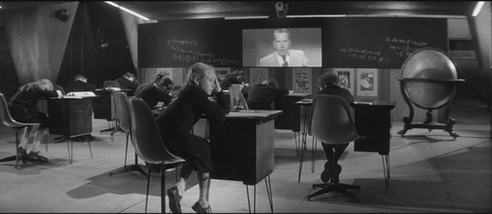 Joseph Losey's These Are The Damned is perhaps one of the most unique films to come out of the Hammer catalog - a film that manages to defy typical genre conventions, being both a disturbing apocalyptic science fiction story as well as a story about teen rebellion and personal freedom. The film is centered around Simon Wells, an American whose visiting England in an attempt to getaway. Simon meets Joan, a beautiful young woman, and the two have an instant connection, but unfortunately Joan's older brother King, the leader of a street gang, has other plans. Attacked, Simon is left serious hurt, eventually being aided by the local authorities and a high-ranking government researcher, Bernard, who waxes poetic about 'the age of senseless violence' they now live in. Living under the oppressive control of her older brother, Joan is sick of being controlled, eventually managing to escape King's grasp and track down Simon in order to seek forgiveness. The two are eventually discovered by King and his gang, but this time while escaping they end up stumbling onto the grounds of a top secret research facility run by Bernard, eventually discovering a group of strange, cold-blooded children who've been genetically engineered to survive a nuclear war. These Are The Damned blends begins with two very distinct narrative storylines, ultimately blending them to create a fascinating indictment of modern times where violence is simple viewed as an inevitability. There is an interesting dichotomy between thse two narratives that eventually merge, with the street gang’ s penchant for violence and oppression directly speaking to what the Bernard is trying to achieve at his facility, creating human beings strong enough to survive the worst aspects of man, which in this case would be nuclear war. What’s interesting is how through his research he has become just as, if not more oppressive, having these genetically-modified children completely segregated from the outside world. While there is no question that Losey’s larger critique is simply about humanity’s penchant for violence and destruction, the film also does raise interesting ideas as it pertains to censorship, blending the two narratives to do it. For those unfamiliar, Joseph Losey’s films tend to be some of the most uniquely photographed films that exist, with These Are The Damned is no different, as the filmmaker delivers another stylistically impressive film, full of well-placed camera movements, forced perspectives, and sweeping photography which gives the film a truly uncommon look and feel. Bernard’s character is essentially a mad scientist whose become so fearful of humanities inevitable destruction that he has created this radioactive children, convinced that evolving the human species is the only way to assure survival in this time of such violence. Bernard isn’t a character that is painted in a particularly good light by the end of the film, but he is the character most responsible for helping make These Are The Damned statement about the state of humanity. Unique, fascinating, and one-of-a-kind, Joseph Losey’s These Are The Damned is a sci-fi apocalypse oddity, which speaks to the violent nature of man. 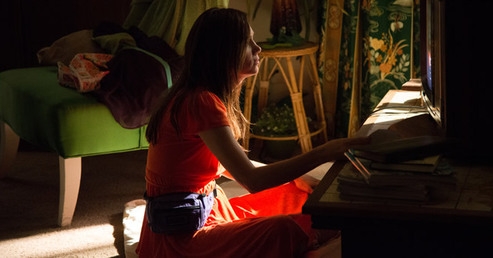 Shira Piven's Welcome To Me tells the story of Alice Klieg, a young woman suffering from Borderline Personality Disorder, who lives a secluded lifestyle in front of the television, obsessing over her idol, Oprah Winfrey. When Alice learns that she has won the lottery, she stops taking her medication and seeing her psychiatrist, using her newfound fortune to buy her own talk show on network television. Inspired by her idol, Alice uses her talk show as a platform to share her distinctive viewpoint, including some intimate details about her life, family, and friends which inadvertently leads to feelings being hurt. Shira Piven's Welcome to Me is a uncomfortable, dark comedy that relies heavily on Kristen Wig's performance, unfortunately falling short of delivering a thoughtful examination of mental illness. Wig does a fantastic job making Alice an endearing character, being a troubled individual who is extremely funny, while being simultaneously heartbreaking and even terrifying at times. There is an off-kilter aspect to Wig's performance that certainly adds dimension and depth to a narrative that simply lacks in-depth insight into mental illness, as the film around her simply lets her down, being too uneven to fully succeed. That being said, Welcome To Me thrives as a comedy behind Wig's off-kilter performance, also having a nice incendiary undercurrent centered around greed, as the studio bends over backwards to supply Wig with whatever she needs regardless of how offensive it is, due to her large cash flow. Films about mental illness are very hard to execute properly, and while Welcome To Me succeeds at stretches due to Wig's transfixing performance, the film falters during most of its more dramatic moments, being at its best when it's simply an outlandish comedy.  Jimmy Chin & Elizabeth Chai Vasarhelyi's Meru is a documentary about big-wall climbing that follows renowned alpinists Conrad Anker, Jimmy Chin, and Renan Oztur in their pursuit of conquering the Shark's fin on Mount Meru, widely regarded as one of the most difficult and dangerous climbs in the world. Like any great documentary, Meru isn't so much a film about rock-climbing but the passion the men have for the sport, offering a fascinating exploration of psychology of these three men who has dealt with sacrifice and loss in an attempt to pursue their dream and achieve their ultimate goal. Without giving away details it's hard to understand how strong the storytelling is, but lets just say that Meru unfolds in a way that would make most fiction films blush, diving into the psychology of these characters, examining the culture of wall-climbers, and ultimately coming to understand and appreciate why these men risk their lives in such pursuits. While the appeal of accomplishing something nobody has been able to do before is a major aspect of these men's pursuit, Meru takes its examination of these characters one step further, tapping into the psychology of its characters, providing engrossing insight into how their past has shaped their present and the men they are to this day. I particularly found the treatment of Conrad Anker fascinating, a man who is caught between his ultimate passion and his commitment to his family, taking life and death risks every time he goes back out for a climb. Conrad, the elder statesman of the three climbers, is a man who is essentially obsessed with conquering the mountain, due at least in part to his past mentor's failings, and while Meru certainly explores this obsessive psychology that drives him, the film never judges him for it, providing an even-keeled examination. While some viewers are sure to still view the pursuit of these men as crazy, I'd argue that Meru is able to capture the essence of the importance of living life to the fullest, showing the power the mind has over the body and the nirvana which can take place when accomplishing one's dreams. Another thing that jumps out about Meru is the sense of wonder the film is able to create, with the Shark's Fin on Mount Meru taking on an almost supernatural quality. Meru photographs the mountain in a way that gives it ominous presence, standing in defiance, daring big-wall climbers to scale its dangerous peaks. The film gives the viewer a front row seat on this extremely difficult climb, providing intimate detail into the sheer scope, danger, and difficulty of such a climb on these three men. Providing an in-depth look at three rock-climbers and their decade long pursuit of climbing Shark's Fin on Mount Meru, Jimmy Chin & Elizabeth Chai Vaserhelyi's Meru is a beautiful documentary which captures the essence of the wall-climbing culture, the special bond formed between climbers, and the the risks three men are willing to make in an effort to achieve their ultimate dream. |
AuthorLove of all things cinema brought me here. Archives
June 2023
|
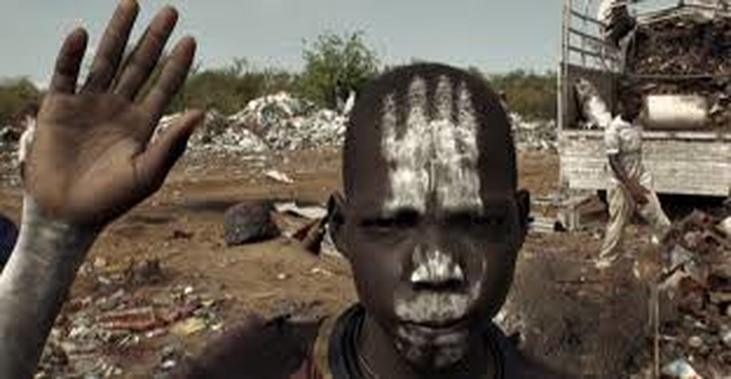



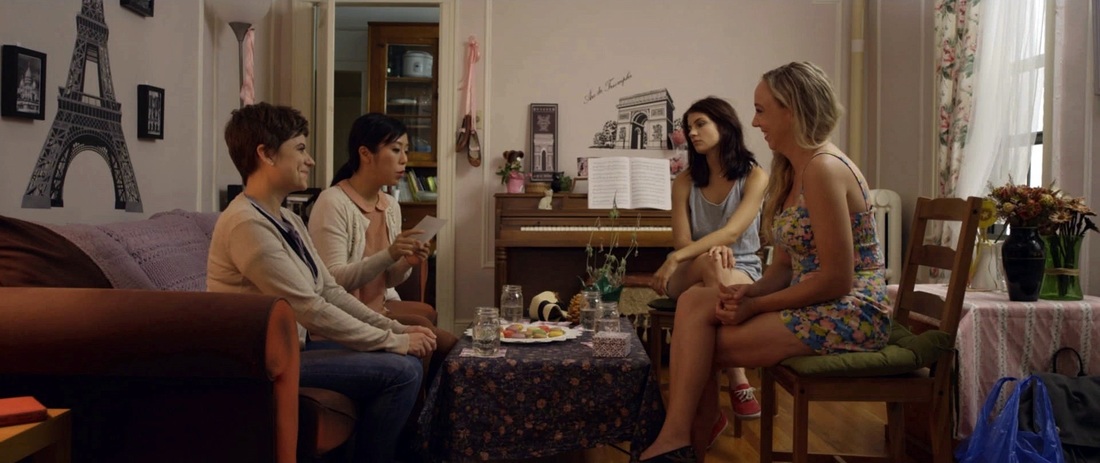







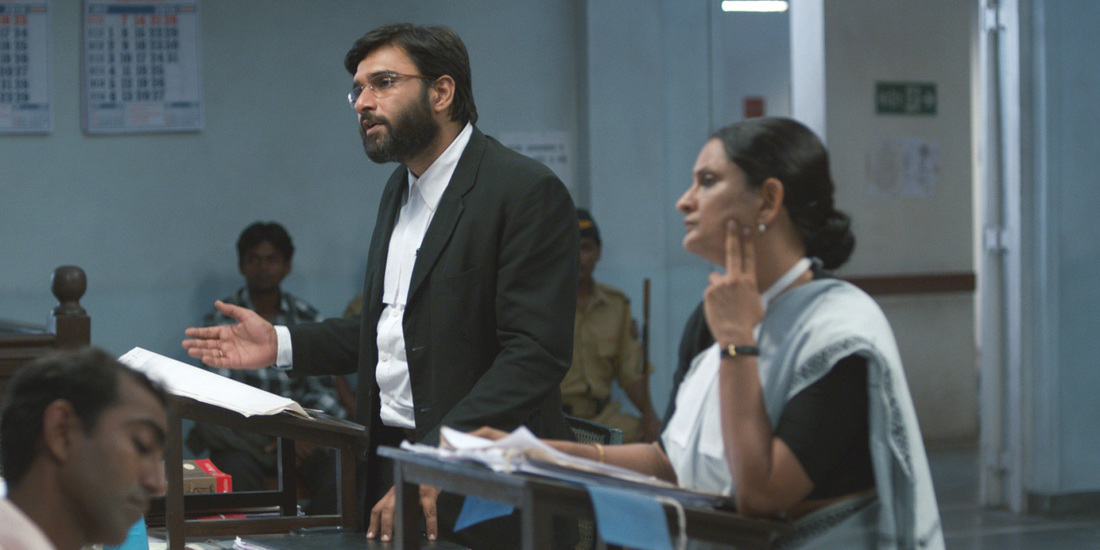
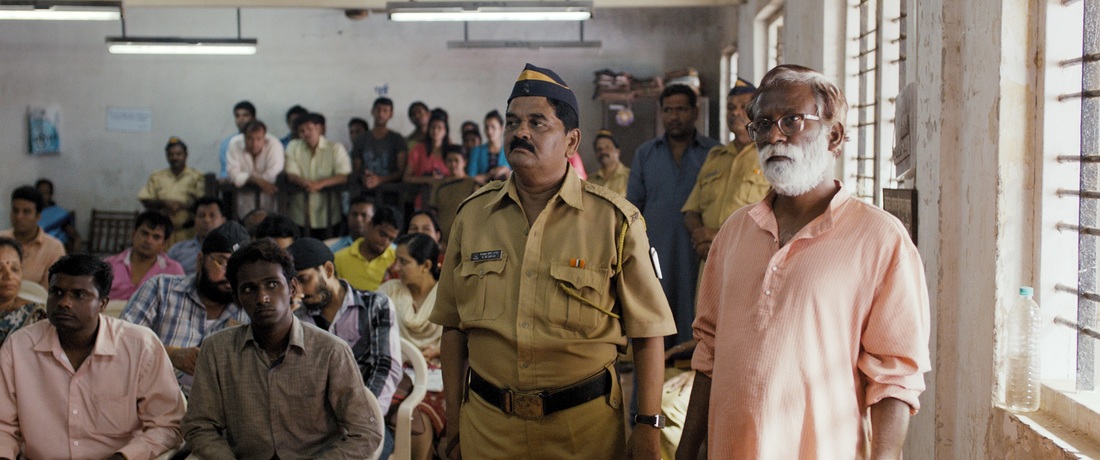
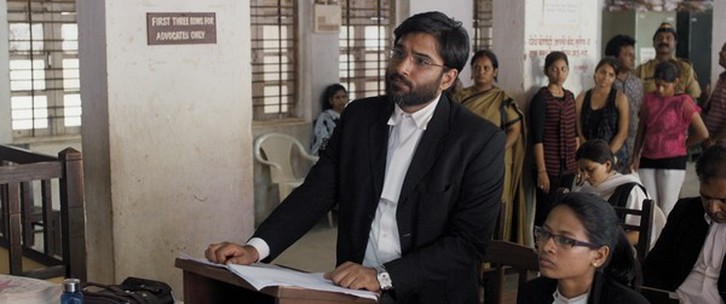

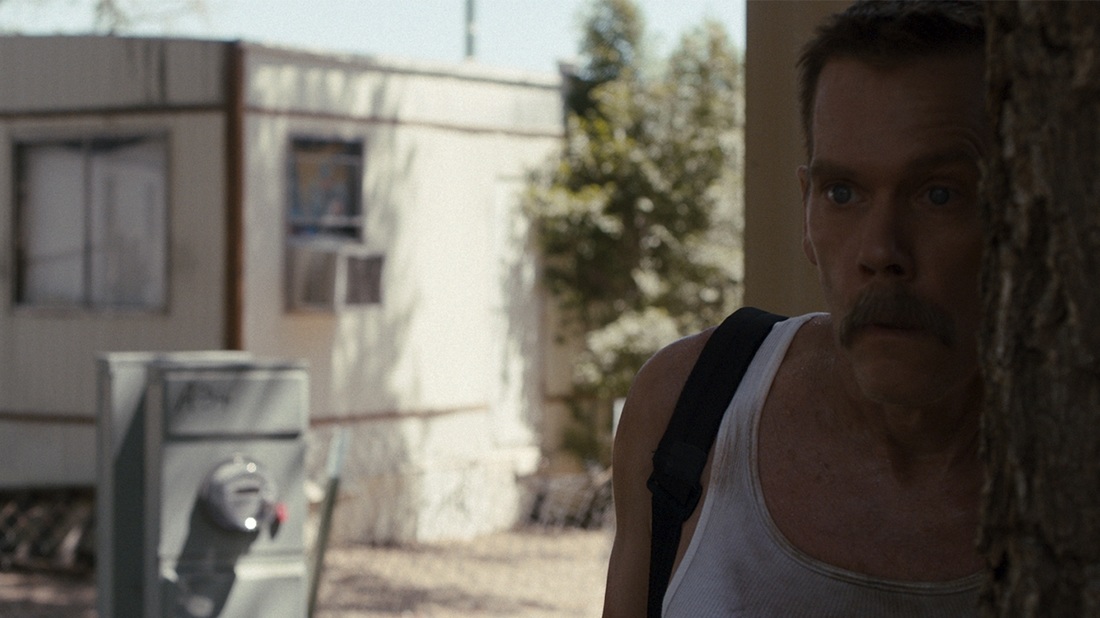
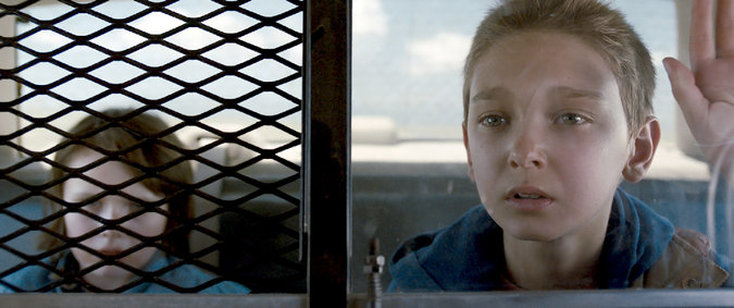
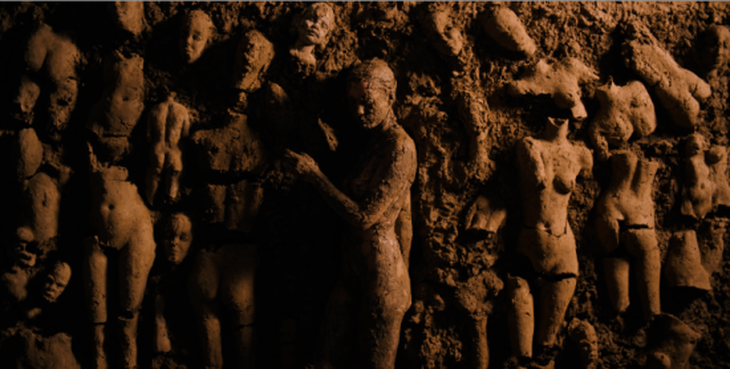

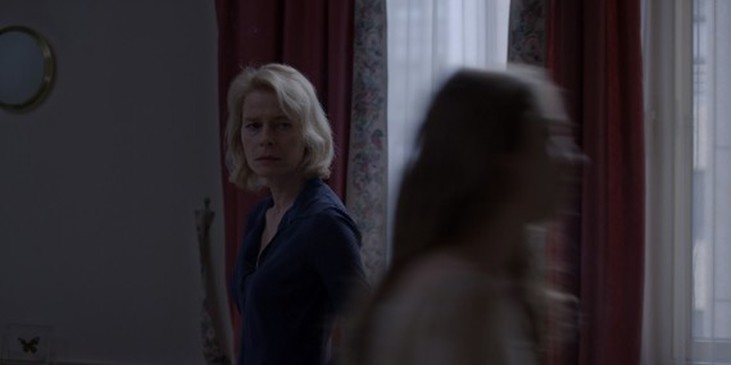
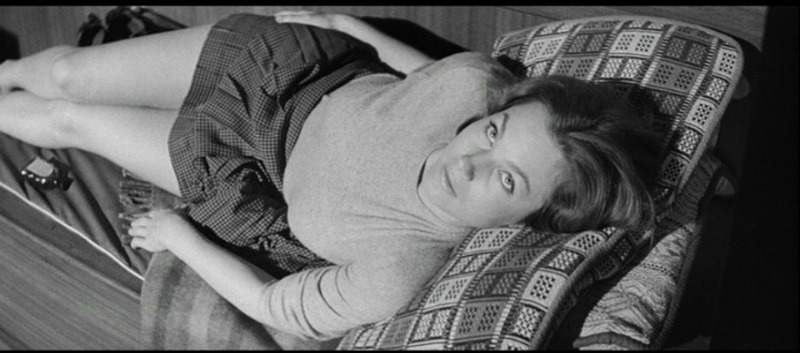
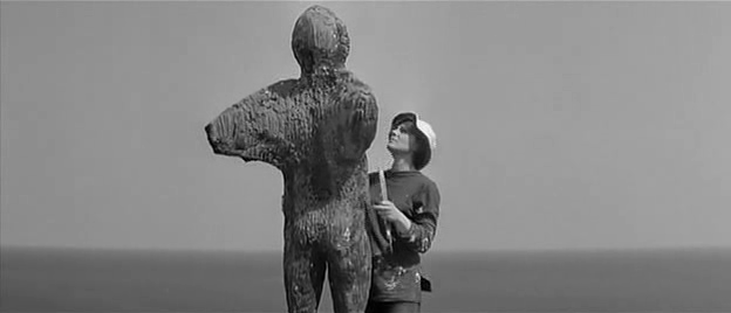
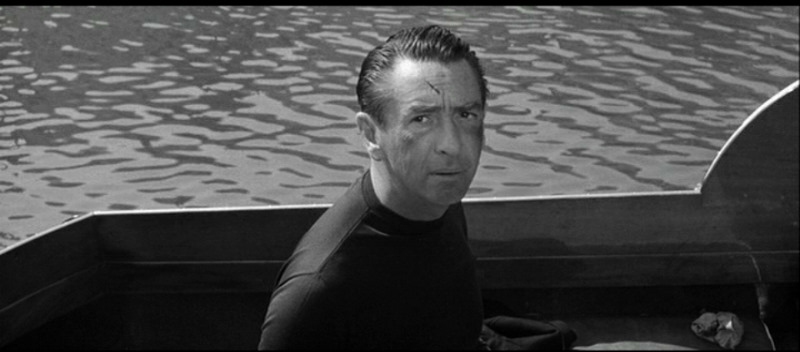






 RSS Feed
RSS Feed
